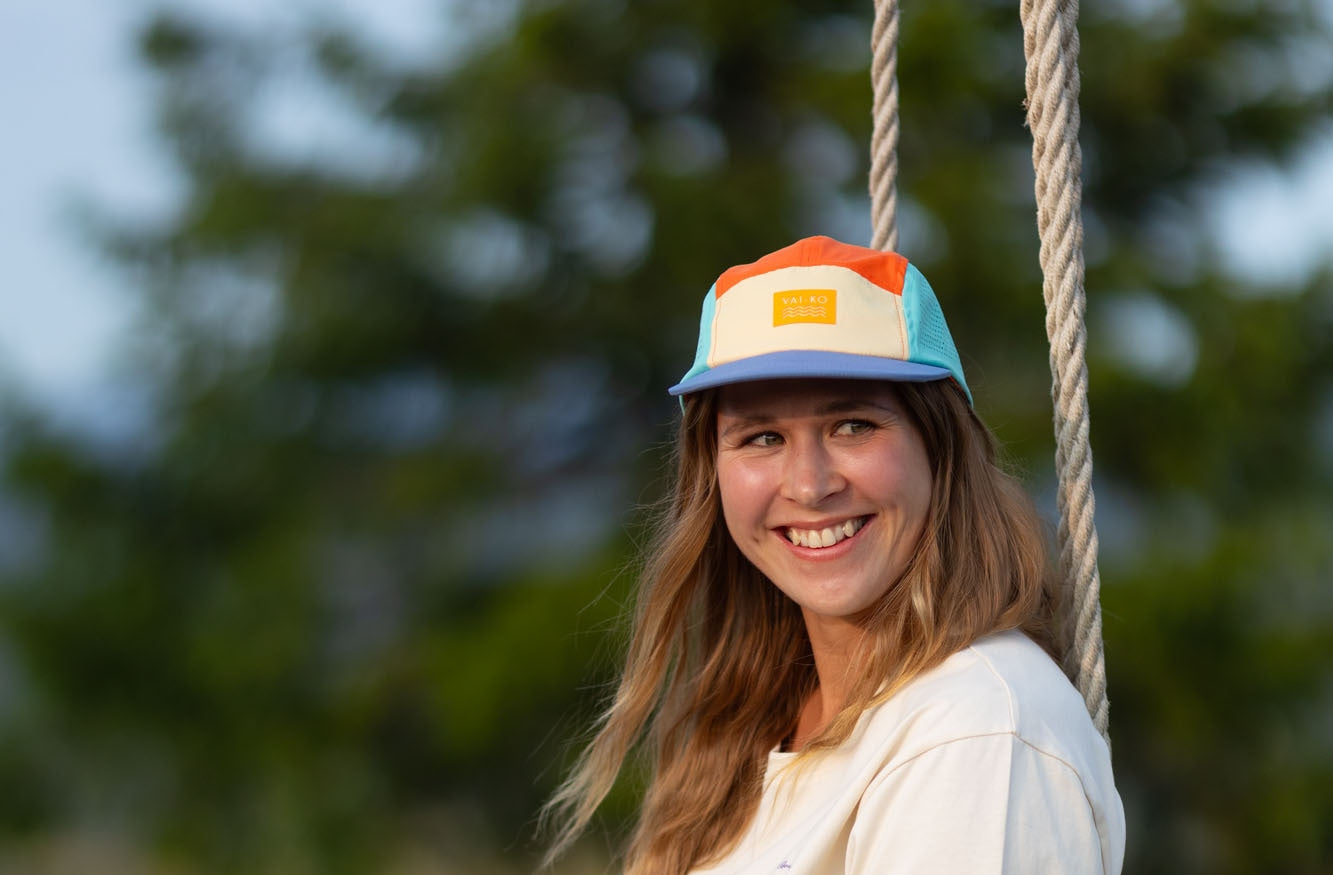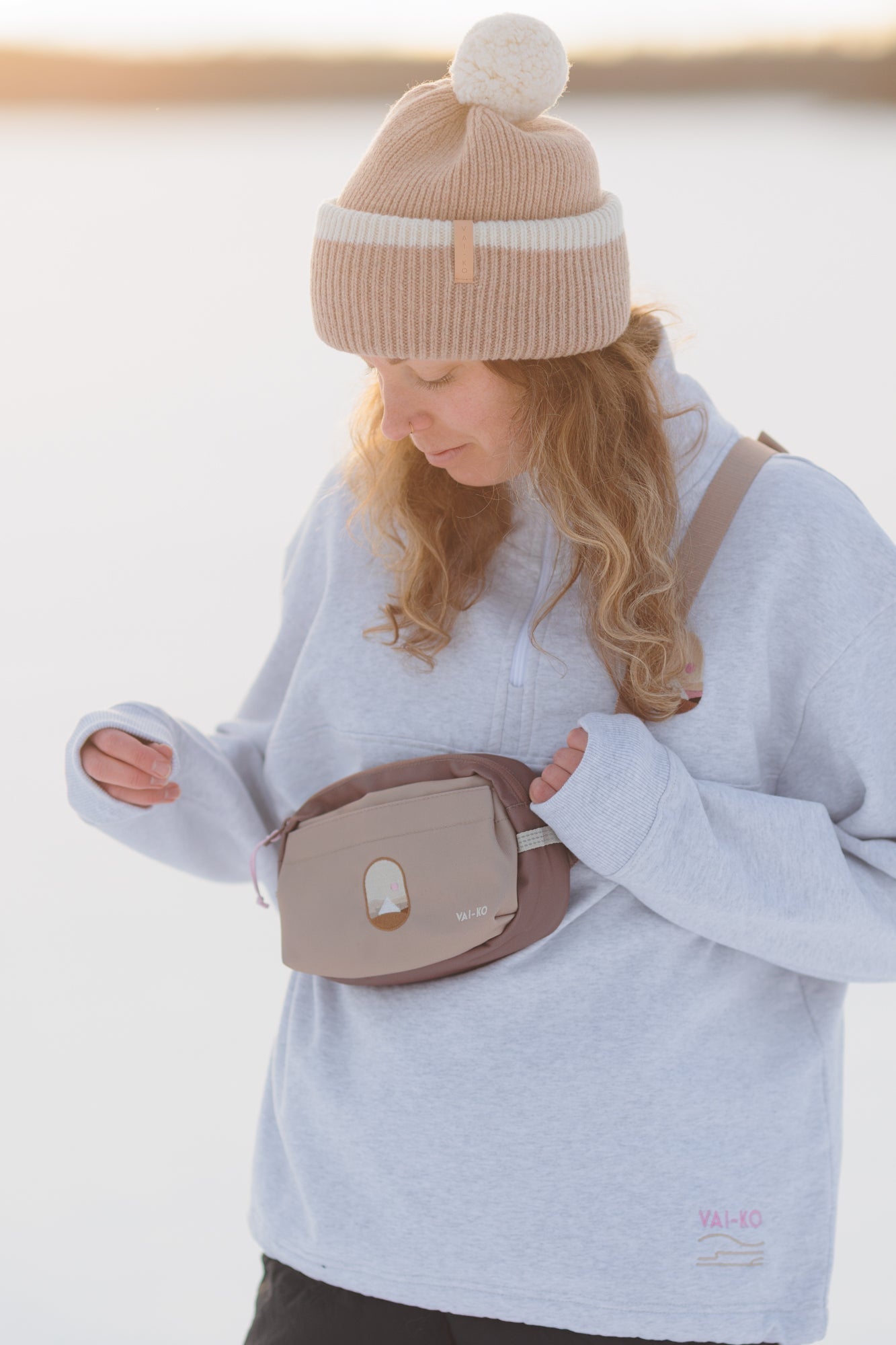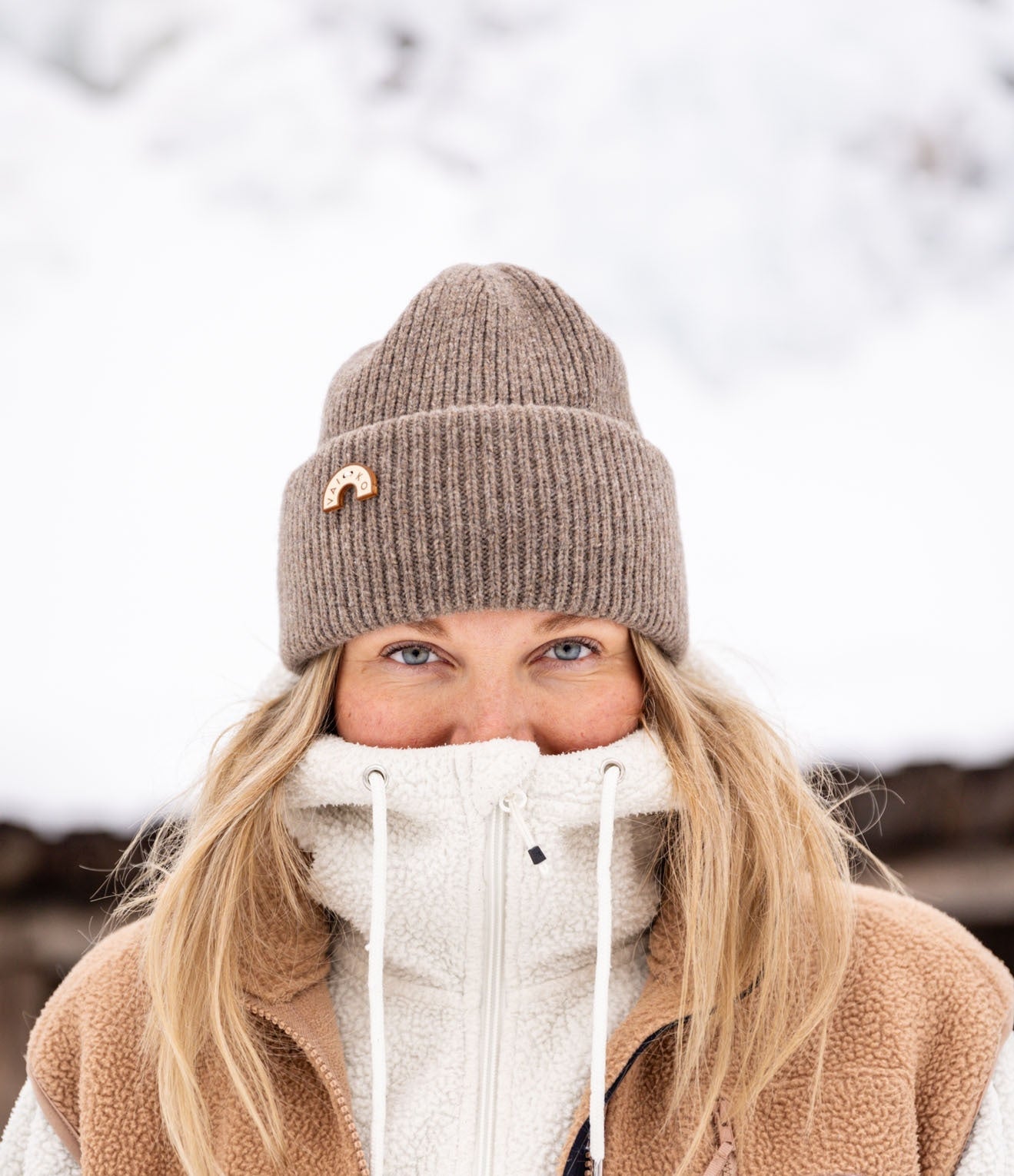Materials&Manufacturing
Materials & Manufacturing
About Materials
No matter what materials we use in our products it's burdening the environment. But since we need clothes to wear and rarely do we have the time and will to knit clothes out of the backyard nettle or something, we have made it our mission to create alternatives that have the smallest effect on people and nature as possible.
So, we believe in natural fibres. They have been here well before any synthetic material and have proved their functionality over thousands of years. They decay quick and easy and their production into yarn doesn't require a lot of chemicals.
Merino wool is nature's own super fibre that comes from a special sheep breed called merino. What makes merino wool different from other sheep wool is the range of fine qualities it offers from being so fine it's used in underwear to being strong enough to make great non-itchy beanies for instance. Merino wool is fully recyclable and biodegradable. It has outstanding heat regulation properties that makes it comfortable to wear in variable weather conditions. It's also naturally odour- and stain-resistant so no washing is needed to freshen up your merino wool garment, airing it out or freezing it will do.
Merino wool fibre manufacturing requires about three times less energy than manufacturing polyester and 4-5 times less than synthetic fibres such as nylon and acrylic. Merino Wool garments don't need to be washed very often, if at all, this saves up a lot of water and energy compared to other fibers.
Like any other fibre, wool has its environmental and ethical issues. Big sheep crowds can cause remarkable erosion and thus affect natural diversity of the area. Mass production farms may use harsh pesticides and antibiotics to protect the wool and animals are not necessarily treated well. Washing raw wool takes up a lot of energy and may cause waste water problems. That's why we have decided to use only certified Organic Merino Wool.
Organic animals are reared on organic feed, they graze on organic land and are free to pursue their natural behaviour with plenty of space outside. Organic sheep are reared, fed, sheltered and transported with consideration for their wellbeing. Cruel practices are prohibited and animal stress is minimised. Organic farmers take a preventative approach to disease, so animals are not routinely treated with antibiotics, wormers or pesticides.
No harmful manufacturing chemicals are used. Bluesign and GOTS standards demand that the chemicals used in processing textiles meet strict requirements on toxicity and biodegreadability. In contrast non-organic manufacture uses tens of thousands of acutely toxic chemicals, including heavy metals, formaldeyde and aromatic solvents, many of which are classified as hazardous by the World Health Organisation (WHO) and have been associated with cancer, birth defects, hormonal and reproductive effects in wildlife and humans.
The end garments are residue free. By banning and restricting harmful chemicals in organic textile production and processing, final products don’t contain allergenic, carcinogenic or toxic chemical residues from them.
Cotton is great, but it takes a large amount of water to bring it from seed to yarn: astounding 11,000 liters of fresh water is needed. Switching to recycled cotton reduces this issue significantly as very little water is needed to recycle cotton into new yarn. When good quality cotton is recycled into new fabric, the quality of the new product is also high unlike with synthetic fibers. With recycled cotton, resources can be saved in every step of production & we're especially happy to save the fresh water for people and nature.
Tencel
Tencel was first invented in the 70's but is still quite rarely used in the textile industry. Tencel is actually bleached wood fibers turned into yarn and it's a form of Lyocell. It is produced in a closed-loop process, which means no waste is generated & use of resources and energy is minimized. Tencell production is super efficient and eco-friendly, the endproduct is very soft, smooth and flowy despite what you might first think after hearing it's made of wood. The material also has great thermal regulative and moisture absorbing qualities
About Manufacturing
From the beginning our mission and driving force has been to create ethical and ecological alternatives and to do good through business. We believe there's no other way of doing life or business than to consider the well-being of our dear nature and fellow humans a part of our vision. Ethical and Ecological should be the new normal, right? So here's what we do to stay true to our mission.
Ethical Manufacturing
Everyone deserves to work in safe and healthy conditions. This might seem to like a no-brainer but sadly occupational health and safety factors such as safe chemical-handling, noise, dust or emergency training are too rarely taken into consideration in the textile industry. In countries like Finland the legislation protects the rights of workers but in other places where those kinds of laws are lacking or non-existent, certificates are a great way to ensure fairness and influence the surrounding society. Many questions of transparency and the lack of information available to customers can be answered with the use of certificates. That means certificates don’t only supervise the fairness of products made by companies working with the certificate but in many cases, the ethical and ecological standards work as an example for companies outside the certificates and they can seek consultation on how to become more people- and eco-friendly.
VAI-KØ uses materials certified by bluesign, G.O.T.S that are two of the strictest in the clothing industry. Certificates such as these determine higher standards for the production of clothing. Working conditions are constantly supervised and assessed to detect local problems and update safety measures, strict measures are imposed when needed.
Made in EU
Worker's rights and fair treatment is a priority to us and we believe in proximity as a way to control the sustainability of our production. To us at VAI-KØ proximity means producing our products as close as possible, mostly inside the EU. Yet bringing all stages of the product cycle to the EU is not possible (for example merino sheep are not farmed in Europe), that's when the role of certificates increases.
Our bluesign- and G.O.T.S-certified merino wool is farmed in Argentina, then spun to yarn and dyed in Austria. The final product is knit and sown in Finland: accessories in Kokkola, where huge blueberries grow in the backyard and merino sweaters in the windy achipelago in Kustavi.
Our Kelo and Naava shirts are made from fabric made in Portugal and then sown into classy daywear in Estonia just a couple hundread kilometers from Helsinki.
Our Earth collection t-shirts and sweaters are made in Portugal.
Our canvas bags are made in Pakistan under CSR-certificate.
Environmental Manufacturing
In addition to the ethical issues, textile certificates tackle the environmental pitholes in the industry. Environmental sustainability is about the companies reducing their ecological footprint by optimizing energy and material input per kilogram of manufactured textile. Minimising the resources used decreases the environmental impact and it automatically adds value to the products with cost efficiency.
Water is a matter of life and death to all life on Earth. That's why certificates supervise the usage and emission of water, which consists of returning purified water into the water cycle and minimizing the aquatic impact. These things have a huge impact on the health of both nature and our fellow humans who live in the areas surrounding textile factories. What comes to air emission, strict criteria for substances and components used in the production of textiles are set. The aim in all of this is to reduce CO2 emissions in all stages of manufacturing.



